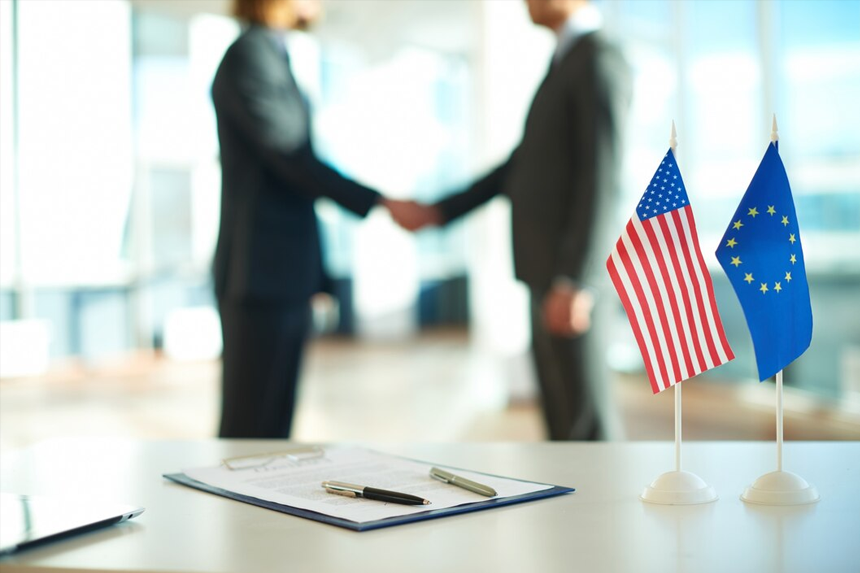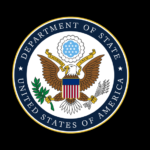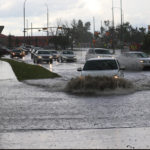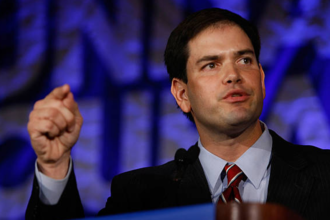The UK Business Secretary claims that without European countries, including Ukraine, having a prominent role in negotiations to end the war with Russia, “no durable peace” cannot exist in Ukraine. Jonathan Reynolds minimized worries about differences between the US and its allies about the conflict’s resolution. He spoke out on rising fears that the Trump administration would push Ukraine peace talks that could exclude European countries, including Ukraine.
- Can the UK Serve as a Bridge Between the US and Europe?
- Should the UK Increase Its Defence Spending?
- Why Is Europe’s Role in NATO More Crucial Than Ever?
- Ukraine's part in peace negotiations: what is it?
- Could Trump’s Approach Lead to a Shift in European Defence Responsibilities?
- Will Europe Firm Against Rising Global Threats?
In response to this, European leaders, including UK Labour leader Sir Keir Starmer, will meet in Paris on Monday, while US officials prepare to engage Russian negotiators separately.
In an interview, Reynolds underlined that as the US and Europe negotiate the changing dynamics of the war, the UK could act as a “bridge”. He did, however, also recognize the difficulties ahead, pointing out that the US’s strong posture would not simplify matters.
Can the UK Serve as a Bridge Between the US and Europe?
Given both sides negotiate the “new era” of geopolitical reality, Reynolds expressed hope the UK might help to reduce tensions between the US and Europe in a positive manner. Despite the challenges, he noted there was no “fundamental breach” in relations and that there remained a “great deal of common ground.” Still, Reynolds acknowledged that handling these relations would not be simple given the “very assertive agenda” emanating from the US.
Reynolds noted that US Defence Secretary Pete Hegseth had emphasised that “everything is still on the table” when questioned on the US and Russia perhaps moving forward with peace negotiations without European countries. Any peace agreement for Ukraine, he said, must incorporate Europe and Ukraine if it is to be genuinely long-lasting. “Ultimate, [President Trump] is someone who likes to win; winning would not mean rewarding a war of aggression,” Reynolds said.
Should the UK Increase Its Defence Spending?
Another important point of contention brought up during the conversation was the UK’s response to growing calls for more defense expenditure. Though he did not provide a clear timetable, Reynolds disclosed that the UK government intends to raise defence spending from 2.3% to 2.5% of national output. Previously urging NATO allies to increase defense spending to 5% of GDP, the Trump government also indicated that it would no longer give European security first priority.
Pressed on whether the 2.5% figure would be sufficient, Reynolds commented that any decision on future hikes would depend on growing risks to national security. “There is no doubt the threat has just got bigger without the US,” he admitted.
Lord Dannatt, former chief of the Army, supported demands for Labour to consider going above the 2.5% aim. He cautioned that the UK military was “too run down” to oversee any future peacekeeping mission in Ukraine.
Despite this, Ministry of Defence sources suggested that the immediate priority would be setting a clear date for when the UK would reach the 2.5% target, which would mark the first time defence spending in the UK had reached such a level since the last Labour government.
Why Is Europe’s Role in NATO More Crucial Than Ever?
Leader of the Labour Party, Sir Keir Starmer, said of the approaching emergency summit in Paris, “once-in-a-generation moment for our national security.” Emphasizing that Europe has to play a more major part in NATO’s future, the UK will try to keep the US and Europe together; disagreements should not divert attention from “external enemies.” The summit’s timing coincided with comments from Trump’s special envoy to Ukraine, Keith Kellogg, who indicated that while European leaders would be consulted, they would not be part of the peace talks between the US and Russia over ending the war.
Seeking to minimize the importance of the Paris conference among more general geopolitical tensions, French President Emmanuel Macron advised that the meeting shouldn’t be “over-dramatized.” Senior White House figures are also expected to meet Russian negotiators in Saudi Arabia in the coming days, with US officials saying that Ukraine had been invited to the talks, though President Volodymyr Zelensky claimed his country had received no such invitation.
Ukraine's part in peace negotiations: what is it?
“We all have to have very, very cold and calm heads right now, primarily because this conflict is still raging,” Conservative Shadow Foreign Secretary Dame Priti Patel said on the premature character of the present peace talks. She reiterated that Ukrainians must have a central role in deciding their future, as the war is about their “independence and sovereignty.”
Patel said it was “too easy to generalize” at this early stage when asked whether she supported President Trump’s suggestion for Ukraine to relinquish territory in exchange for peace. “We have to understand in more detail what they are saying,” she added. Patel underlined the significance of Ukraine and her NATO allies staying strong and consistent in their support as the UK keeps backing that nation.
Could Trump’s Approach Lead to a Shift in European Defence Responsibilities?
Reform UK’s Deputy Leader Richard Tice condemned the US’s stance to the Ukraine war as a “massive wake-up call” for European leaders. According to him, it was not shocking that Trump and his staff were treating discussions with Russia as “everything up for grabs,” therefore this could inspire Europe to assume more responsibility for its own defense.
Co-leader of the Green Party Adrian Ramsay cautioned Ukraine should stay “at the front and centre” for any peace negotiations. He warned that the policies of the Trump government might expose Ukraine and the rest of Europe to “at risk of future Russian aggression.”
Will Europe Firm Against Rising Global Threats?
Former Royal United Services Institute (RUSI) director Karin von Hippel minimised worries about Trump selling Ukraine down the river. She reminded them that as the matter developed European countries should “stay calm”. However, former UK Prime Minister Sir John Major raised alarms about the broader implications of Trump’s “isolationist” foreign policy.
Major cautioned that this slide from global leadership was leaving a power vacuum open for nations like China and Russia to occupy. “Many of the gains we made over recent years, when the Soviet Union collapsed, are now being reversed,” he noted. “If they were to succeed with their venture in Ukraine, no doubt they would be elsewhere before too long.”








